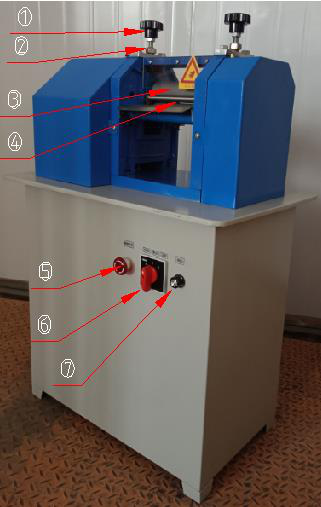resistance test equipment factory
Resistance Test Equipment A Comprehensive Overview for Manufacturers
In the modern industrial landscape, ensuring the quality and reliability of electrical components is paramount. One of the critical aspects of this quality assurance process is resistance testing, which measures the electrical resistance of materials and components. Resistance test equipment plays a vital role in this domain, assisting manufacturers in adhering to safety standards and optimizing product performance. This article delves into the significance, types, and advancements in resistance test equipment used in factories.
Importance of Resistance Testing
Resistance testing is essential for several reasons. First and foremost, it helps identify defects in electrical components, which can lead to failures or malfunctions during operation. Many industries, including automotive, aerospace, and consumer electronics, require their products to withstand rigorous operating conditions. Resistance testing ensures that these components can perform reliably under specified loads.
Moreover, resistance testing adheres to various international safety standards. For instance, devices must pass specific resistance thresholds to be compliant with regulations such as IEC, UL, and ISO standards. Non-compliance can result in product recalls, leading to significant financial loss and damage to a company's reputation. Therefore, utilizing accurate and reliable resistance test equipment is not only a matter of ensuring product quality but also a crucial factor in risk management for manufacturers.
Types of Resistance Test Equipment
There are several types of resistance test equipment utilized in factories, each designed for specific testing requirements
1. Micro Ohm Meters These are specialized devices used for measuring very low resistance, typically in the range of micro-ohms. They are essential for testing connections in high-current applications, such as busbars and electrical joints. Micro ohm meters often feature advanced functionalities, including automated testing sequences and data logging for enhanced accuracy and efficiency.
2. Insulation Resistance Testers These testers specifically measure the insulation resistance of cables, motors, and transformers. They provide high test voltages to ensure that the insulation can withstand operational stresses and prevent electrical leakage. Insulation resistance testers are crucial for predictive maintenance, helping to identify potential insulation failures before they occur.
resistance test equipment factory

3. Digital Multimeters (DMMs) While not exclusively designed for resistance testing, DMMs are versatile tools that measure various electrical parameters, including resistance. They are commonly used in laboratories and manufacturing facilities due to their portability and multiple functionalities.
4. Four-Wire Resistance Testers This advanced equipment employs a four-wire connection technique to eliminate the effect of lead and contact resistances, providing highly accurate measurements. They are commonly used in research and development settings, as well as in quality assurance processes during production.
Advancements in Resistance Test Equipment
The field of resistance test equipment is continuously evolving, driven by advancements in technology and the growing demands of manufacturers. Some of the latest trends include
- Automated Systems Many manufacturers are transitioning to automated resistance testing systems that integrate software for comprehensive data analysis and reporting. These systems reduce human error and increase throughput, making them ideal for high-volume production environments.
- IoT Integration With the advent of the Internet of Things (IoT), resistance test equipment is becoming more interconnected. Real-time monitoring and data collection enable manufacturers to track equipment performance and component quality remotely, facilitating proactive maintenance strategies.
- Portable Test Equipment As industries continue to emphasize efficiency, there is a rising demand for portable resistance testing devices. These solutions allow technicians to conduct tests on-site, reducing downtime and improving productivity.
Conclusion
Resistance test equipment is an indispensable component of quality assurance in manufacturing. By ensuring the reliability and safety of electrical components, manufacturers can meet regulatory standards and enhance product performance. As technology advances, resistance test equipment continues to evolve, offering manufacturers innovative solutions for effective testing. Investing in high-quality resistance testing solutions ultimately safeguards not only the integrity of the products but also the reputation and financial stability of the manufacturing enterprise. Embracing these advancements will pave the way for a more robust and reliable industrial market.
-
Why the Conductor Resistance Constant Temperature Measurement Machine Redefines Precision
NewsJun.20,2025
-
Reliable Testing Starts Here: Why the High Insulation Resistance Measuring Instrument Is a Must-Have
NewsJun.20,2025
-
Flexible Cable Flexing Test Equipment: The Precision Standard for Cable Durability and Performance Testing
NewsJun.20,2025
-
Digital Measurement Projector: Precision Visualization for Modern Manufacturing
NewsJun.20,2025
-
Computer Control Electronic Tensile Tester: Precision and Power for the Modern Metal Industry
NewsJun.20,2025
-
Cable Spark Tester: Your Ultimate Insulation Assurance for Wire and Cable Testing
NewsJun.20,2025
 Copyright © 2025 Hebei Fangyuan Instrument & Equipment Co.,Ltd. All Rights Reserved. Sitemap | Privacy Policy
Copyright © 2025 Hebei Fangyuan Instrument & Equipment Co.,Ltd. All Rights Reserved. Sitemap | Privacy Policy
